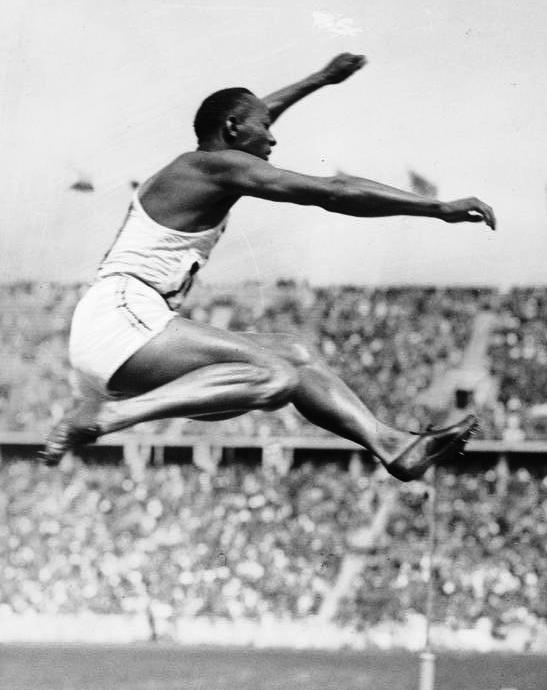By Lady Houston


FROM WIKIPEDIA COMMONS
James Cleveland “Jesse” Owens (September 12, 1913 – March 31, 1980) was an American track and field athlete who won four gold medals at the 1936 Olympic Games.
Owens specialized in the sprints and the long jump and was recognized in his lifetime as “perhaps the greatest and most famous athlete in track and field history”. He set three world records and tied another, all in less than an hour, at the 1935 Big Ten track meet in Ann Arbor, Michigan, a feat that has never been equaled and has been called “the greatest 45 minutes ever in sport”.
He achieved international fame at the 1936 Summer Olympics in Berlin, Germany, by winning four gold medals: 100 meters, long jump, 200 meters, and 4 × 100-meter relay. He was the most successful athlete at the Games and, as a black American man, was credited with “single-handedly crushing Hitler‘s myth of Aryan supremacy“.
The Jesse Owens Award is USA Track & Field‘s highest accolade for the year’s best track and field athlete. Owens was ranked by ESPN as the sixth-greatest North American athlete of the 20th century and the highest-ranked in his sport. In 1999, he was on the six-man short-list for the BBC‘s Sports Personality of the Century.
Ohio State University
Owens attended the Ohio State University after his father found employment, which ensured that the family could be supported. Affectionately known as the “Buckeye Bullet” and under the coaching of Larry Snyder, Owens won a record eight individual NCAA championships, four each in 1935 and 1936. (The record of four gold medals at the NCAA was equaled only by Xavier Carter in 2006, although his many titles also included relay medals). Though Owens enjoyed athletic success, he had to live off campus with other African-American athletes. When he traveled with the team, Owens was restricted to ordering carry-out or eating at “blacks-only” restaurants. Similarly, he had to stay at “blacks-only” hotels. Owens did not receive a scholarship for his efforts, so he continued to work part-time jobs to pay for school.

